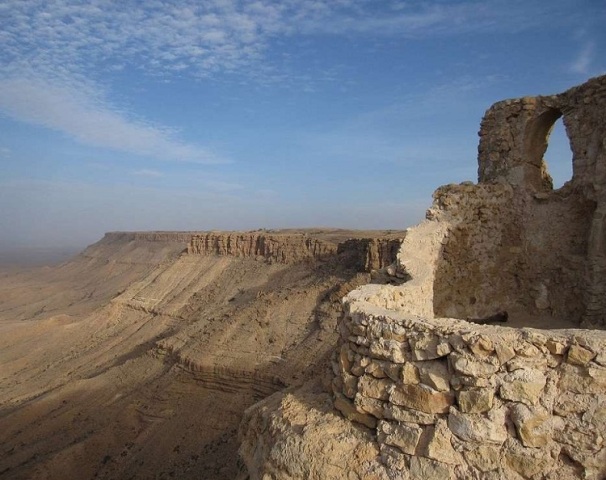Libya is not only rich in oil reserves but history too! Read this article and find out exactly what!
Facts About Libya
Enclosed by Algeria, Chad, Niger, Sudan, Tunisia and a large portion of Egypt, Libya is a country without which Africa would be incomplete and less interesting. The nation’s susceptibility to varying degrees of foreign control has contributed tons to Libyan history. In the past, the Phoenicians, Carthaginians, Greeks, Romans, Vandals and Byzantines had ruled over significant parts of Libya. Today, captivating remnants of the Greek and Roman rule are found at Cyrene, Leptis Magna and Sabratha which confirm the presence of these ancient cultures. The Arabs chanced upon the North African territory in the seventh century AD and had a strong hold on Libya. In the 16th Century, Libya was seized by the Ottoman Turks and in 1911, the Italian Invasion occurred. In fact, it was Italy that christened the nation with the official name “Libya”. Resistance to the Italian rule was spearheaded by the Sanussiya religious brotherhood between the two world wars. Finally in 1947, Italy surrendered all claims on Libya under the terms of the peace treaty with victorious powers of World War II. Follow this article and encounter a few Libyan facts that are worth knowing.

Interesting & Fun Facts About Libya
-
Libya boasts of 685,524 sq miles of territorial land and a population 0f 6.4 million, as per UN surveys of 2009.
-
Majority of the Libyans are Sunni Muslims and the official language is Arabic. English and Italian are widely comprehended in the main cities.
-
Colonel Muammar Al Qadhafi currently presides over the Jamahiriya (Government) and is popularly known as 'Leader of the Revolution (De Facto Head of State)'.
-
African Union, Arab Bank for Economic Development in Africa (ABEDA), African Development Bank (AfDB), Arab Fund for Economic and Social Development (AFESD), Arab League (AL), Arab Monetary Fund (AMF) are some of the organizations that Libya is a part of.
-
Idris was the first and only king of Libya, reigning from 1951 to 1969, and the Chief of the Senussi Muslim order. His monarchy was overthrown by Muammar Al Qadhafi in a bloodless coup on 1 September 1969.
-
Dust-laden ghibli, a southern wind lasting one to four days in spring and fall is a common phenomenon in Libya.
-
Due to desertification and limited natural fresh water resources, the ‘Great Manmade River Project’, the largest water development scheme in the world, is being built to bring water from large aquifers under the Sahara to coastal cities.
-
The non-oil manufacturing and construction sectors, which account for about 20% of GDP, have expanded from processing mostly agricultural products to include the production of petrochemicals, iron, steel, and aluminium.
-
Libya imports about 75% of its food.
-
Italy, France, Germany, Turkey, Spain and the UK are Libya’s major trading partners.
-
Dr Al-Baghdadi Ali al-Mahmudi is the incumbent prime minister of Libya.
-
Significant Oil Reserves were discovered in 1959. Thanks to this natural resource, the subsequent income from petroleum sales now renders what was once one of the world's poorest countries an extremely wealthy nation, as measured by per capita GDP.
-
By September 2009 Libya witnessed 323,000 internet users.
-
Libya was blamed for the Lockerbie plane bombing, and two Libyans suspected of organizing the incident were handed over in 1999 for trial in ‘The Hague’ under Scottish law. In 2001 one of the suspects was found guilty of killing 270 people in the bombing.
-
Tripoli formally took responsibility for the disheartening incident in 2003. They obliged to compensate families of the 270 victims.
-
Media rights body ‘Reporters Without Borders’ has said press freedom is "virtually non-existent" in Libya, with self-censorship being commonplace.
-
An early objective of the new revolutionary government was the withdrawal of all foreign military installations from Libya.
-
Col Gaddafi opted to support a broad range of militant groups over the years. This includes the Irish Republican Army and the Palestine Liberation Organisation. Libya's alleged involvement in attacks in Europe triggered US military strikes in 1986.
-
Muammar Abu Minyar began to espouse his own political system, the ‘Third Universal Theory’. The system is a combination of socialism and Islam derived in part from tribal practices and is supposed to be implemented by the Libyan people themselves in a unique form of "direct democracy."
-
Libya enjoys a Mediterranean, coastal dry and extreme desert interior climate.
See also
More from iloveindia.com
- Home Remedies | Ayurveda | Vastu | Yoga | Feng Shui | Tattoos | Fitness | Garden | Nutrition | Parenting | Bikes | Cars | Baby Care | Indian Weddings | Festivals | Party ideas | Horoscope 2015 | Pets | Finance | Figures of Speech | Hotels in India : Delhi | Hyderabad | Chennai | Mumbai | Kolkata | Bangalore | Ahmedabad | Jaipur
- Contact Us Careers Disclaimer Privacy Policy Advertise With Us Lifestyle Sitemap Copyright iloveindia.com. All Rights Reserved.







